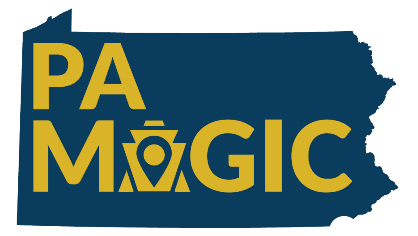- Home
- Pennsylvania House Bill 1106 Position Statement
PA House Bill 1106 (HB 1106) amends the Engineer, Land Surveyor and Geologist Registration Law (Act 367 of 1945). Although much of the language simply clarifies or updates present language and practice, there are a few aspects of the language that are imprecise or flawed such that the effects of the amendment will be contrary to the public good. In particular, there are aspects of the law that implicitly target technologies and practices in the realm of Geographic Information Systems (GIS), and we believe that more explicit treatment of the topic would result in better law and improve the public welfare.
What we agree with:
- More and more geographic data is being collected and made public by more people using many technologies.
- There is a need to understand the quality of data that is published.
- Surveyors have unique knowledge and important roles in protecting the public welfare.
- Distinctions among various practices and types of surveys are valid.
- Periodic updates to the registration law to address technological and societal changes are logical
The areas in which the language is either flawed or over-reaching are:
- Amends the definition of “Practice of Land Surveying” to include determination of the position of any structure or permanently installed equipment in relation to monuments or reference points, (emphasis added)
- This could be interpreted as an expansion of the surveying practice purely for the benefit of the practitioner without debate
- The end use of the data being collected is ignored
- Some data that is collected now without surveyor supervision would now require it, which may actually limit data being collected
- This could inadvertently increase costs and burdens on local governments using technologies to manage infrastructure and monitor taxable assets.
- Amends the definition of “Engineering Land Surveys”, something both Professional Engineers and Professional Land Surveyors are authorized to perform, to include mapping or positioning methods without regard to tools or technologies which currently exist or which may be developed in the future, the application of which means and methods involves professional understanding as to the appropriate and safe usage; (emphasis added)
- Inclusive language inhibits new uses of measuring technologies and may lead to lost opportunities and economic development. Examples might include:
- Autonomous vehicle development wherein sensors rapidly and continuously locate surrounding objects
- Certain uses of commercial drones that rely upon fixed perimeters or identified fixed features to validate their function
- Language is so inclusive of tools and technologies not yet invented that it increases the likelihood of lawsuits rather than reducing them.
- The rules apply irrespective of the quality of the data; no standards are being established on the quality or accuracy of data for different uses and is only setting a standard for who a provider can be
- Inclusive language inhibits new uses of measuring technologies and may lead to lost opportunities and economic development. Examples might include:
- This legislation does not even mention Geographic Information Systems (GIS), even though a recent decision over GIS data collection by the State Registration Board for Professional Engineers, Land Surveyors and Geologists and subsequent court appeals are the true impetus for these clarifications in the registration law. There is also an active national debate on the role of Professional Land Surveyors in the practice of GIS. Valid viewpoints that would inform our own debate and discussion in PA include:
- The Inclusions and Exclusions of Surveying Practice Model Law as developed by the National Council of Examiners of Engineers and Surveyors (NCEES).
- Records of similar debates in other states, including North Carolina, Virginia, West Virginia, Oregon, and others
- Position statements by the Urban and Regional Information Systems Association (URISA), Association of American Geographers (AAG) and the National States Geographic Information Council (NSGIC) on national legislation (S 1253).
Implications
Common activities that might logically be only provided by licensed surveyors or engineers given the problematic language in this bill include:
- County assessment maps not created by a land surveyor
- Remote sensing with data extraction of any type using a drone
- A local government’s inventory of fire hydrants
- Guide rail inventory by DPW interns
- Determining an address from existing databases (geocoding).
- Using a GPS unit to provide coordinates to emergency responders
- Search and rescue using a GPS
- Mark out utilities for PA OneCall before excavating
Some of these activities might indeed be better managed and controlled by surveying and engineering professionals. If so, then government and utility costs will surely increase; this is contrary to the opinion expressed in the Fiscal Note accompanying HB 1106.
Our Recommendation
- The Senate should not pass HB 1106 as it is written today.
- The Legislature should hold or sponsor hearings on HB 1106 that reflect the current national debate to provide clarification and/or improved standards that:
- Define the roles and responsibilities of surveyors in GIS
- Set standards for data collection relative to the intended data use
- Allow for technology advancements that will improve safety and increase economic growth.
Approved by the Board July 20, 2017
